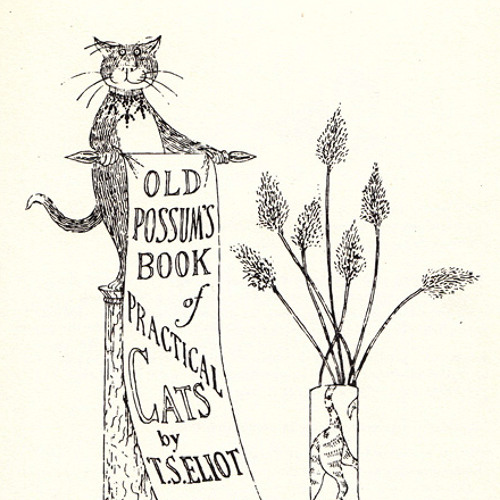

Published in November 1939 in a fundraising effort to aid the Red Cross during World War II, this book was sponsored by Queen Elizabeth, and its contents were contributed by fifty British authors and artists. The Queen's Book of the Red Cross (1939) " Lines to a Yorkshire Terrier", a few lines of which were incorporated into the sequence for "The Awefull Battle of the Pekes and the Pollicles"."Lines to a Persian Cat", from which the title of Act 2 originally came from ("Why will the summer day delay? / When will Time flow away?").Two of the poems are used in the musical: "Rhapsody on a Windy Night", a few lines of which were also incorporated into "Grizabella the Glamour Cat"Ī short collection of poems published in 1933.Prufrock and Other Observations (1917) Ī collection of poems published in 1917, from which two poems served as the inspiration for " Memory": Text from a letter Eliot had written to his publisher in 1936 was expanded into " The Journey to the Heaviside Layer".This poem has since been published by Faber & Faber in The Poems of T. " Pollicle Dogs and Jellicle Cats", of which " Jellicle Songs for Jellicle Cats" is modelled after and includes lines from." Grizabella, the Glamour Cat", which was not included in Old Possum's Book of Practical Cats because it was considered too sad for children.The following were incorporated into the musical: "(Of) The Awefull Battle of the Pekes and the Pollicles (Together with Some Account of the Participation of the Pugs and the Poms and the Intervention of the Great Rumpus Cat)"Įliot's widow, Valerie, shared some of Eliot's unpublished drafts and writings with the original creative team for Cats.Most of the songs in the musical can be found in their entirety in this book, namely: Old Possum's Book of Practical Cats is a collection of poems published in 1939.

Old Possum's Book of Practical Cats (1939) Many of the lyrics are lifted from his poems with little to no alterations. 1.5 The Queen's Book of the Red Cross (1939)Įliot's poetry serves as the basis or inspiration for all the songs in the musical.1.3 Prufrock and Other Observations (1917).1.1 Old Possum's Book of Practical Cats (1939).

He was fond of giving them peculiar names such as Jellylorum, Pettipaws, Wiscus, and George Pushdragon. He was awarded the Nobel Prize in Literature in 1948, "for his outstanding, pioneer contribution to present-day poetry".Įliot loved cats and owned many during his life. He was also known for his seven plays, particularly Murder in the Cathedral (1935) and The Cocktail Party (1949). It was followed by some of the best-known poems in the English language, including The Waste Land (1922), "The Hollow Men" (1925), "Ash Wednesday" (1930), and Four Quartets (1943). Alfred Prufrock" (1915), which was seen as a masterpiece of the Modernist movement. He became a British subject in 1927 at the age of 39, subsequently renouncing his American passport.Ĭonsidered one of the twentieth century's major poets, Eliot attracted widespread attention for his poem "The Love Song of J. Louis, Missouri, to a prominent Boston Brahmin family, he moved to England in 1914 at the age of 25 and would settle, work and marry there. T S Eliot (26 September 1888 – 4 January 1965) is the author of Old Possum's Book of Practical Cats (1939), a book of poetry that became the basis for the musical Cats.Įliot was a poet, essayist, publisher, playwright, and literary and social critic.


 0 kommentar(er)
0 kommentar(er)
